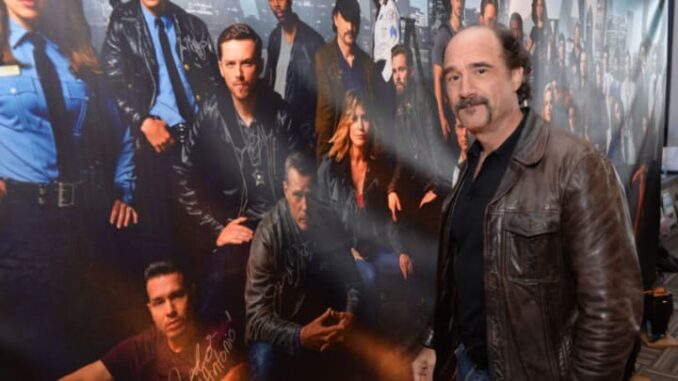
Why Fans Are Worried About Halstead and Upton in Chicago PD
Chicago PD, with its gritty realism and unflinching dive into the moral complexities of law enforcement, has long hinged its success not just on thrilling casework but on the deeply intertwined lives of its central characters. Among these, the partnership and eventual romance between Detective Jay Halstead and Detective Hailey Upton – affectionately known as “Upstead” by fans – became a beating heart of the show. Their nuanced chemistry, shared vulnerabilities, and unwavering trust provided a much-needed emotional anchor in a world perpetually on the brink of chaos. But in a move that sent seismic shockwaves through the fandom, Jay Halstead abruptly left Intelligence, leaving Hailey Upton, and the viewers, in a state of profound disquiet. The worry that now permeates the Chicago PD fan base regarding these two characters is multi-layered, touching upon the show's very identity, its emotional core, and the precarious future of its beloved, now splintered, lead.
The primary source of this pervasive worry stems, of course, from the disruption of a foundational relationship. For seasons, Upstead evolved from a professional pairing into a deep, abiding love, built on shared trauma, unspoken understanding, and a mutual commitment to navigating the ethical tightrope of their dangerous profession. They were each other’s rock, their moral compasses often aligning, providing a sense of stability and hope amidst the show’s often bleak landscape. Jay’s departure, not through death or a carefully crafted long-term arc, but as a relatively sudden decision to join a military unit in Bolivia, felt like a deliberate amputation of this vital limb. Fans invested deeply in their slow-burn romance, their whispered conversations, and their quiet domesticity as a counterbalance to the show’s intensity. To have that ripped away leaves a gaping void, not just in the narrative, but in the emotional satisfaction viewers derived from watching their story unfold. The worry is that the show has sacrificed its emotional core for an abrupt plot twist, leaving a beloved couple broken beyond repair.
This leads directly to the profound concern for Hailey Upton's emotional well-being. Jay Halstead wasn't just her husband; he was her anchor, the person who understood the depths of her darkness and helped her navigate her complex emotional landscape. His departure has plunged her into a desolate solitude. Viewers have witnessed Upton's struggles with anxiety, trauma, and a tendency towards self-destruction. Without Jay's steadying presence, his unwavering faith in her, and his ability to pull her back from the edge, fans fear a catastrophic regression. Her increasingly reckless behavior, her haunted eyes, and her palpable isolation are not just character beats; they are chilling signs of a woman fraying at the edges. The worry is that Upton, stripped of her emotional support system, will spiral into a self-destructive abyss, either physically harming herself through dangerous police work or becoming emotionally hollowed out, losing the essence of the resilient, compassionate detective she once was. The potential for her character to be irrevocably broken, or even written off the show due to her profound grief, looms large in fans' minds.
Beyond the personal anguish of Upton, the worry extends to the altered team dynamic and the show's overall identity. Jay Halstead was a crucial component of Intelligence. He was Voight's moral compass, a steady partner, and a respected voice of reason. His absence leaves a lopsided dynamic within the unit. Who fills his shoes as Upton's partner? How does the team dynamic shift when a central figure is gone? The show prides itself on its ensemble cast, but the specific chemistry and established roles contribute to its success. Jay's departure forces a re-evaluation of these roles, creating an unsettling uncertainty about the future interactions and narratives. There's a fear that without the Upstead balance, the show might lean too heavily into the darker, more cynical aspects of Voight's world, losing the grounding influence that Jay and Hailey often provided. The worry is that Chicago PD, without its moral backbone and its most compelling romantic pairing, will lose its distinctive flavor and become a shadow of its former self.
Finally, there's the underlying fear of unresolved stories and unfulfilled potential. While the door remains technically open for Jay's return, the open-ended nature of his departure, coupled with Jesse Lee Soffer's (Jay's actor) explicit statements about moving on, leaves fans in a frustrating limbo. Will there be a true reunion? Will Upton ever find closure? Will her character ever heal, or will she remain perpetually marked by this profound loss? The unresolved tension and the poignant silence between Jay and Hailey, communicating only through infrequent phone calls, weigh heavily. Fans worry that their beloved characters' stories will forever remain incomplete, leaving a lingering sense of disappointment and a lack of true narrative satisfaction.
In essence, the worry surrounding Halstead and Upton in Chicago PD is a testament to the power of character-driven storytelling. Fans are not just mourning the absence of an actor; they are grieving the loss of a foundational relationship, fearing for the well-being of a beloved character left adrift, and grappling with the potential alteration of a show they have invested in for years. The future of Hailey Upton, and indeed the show itself, feels precarious, shrouded in the lingering question of whether the narrative can truly recover from such a significant, and heartbreaking, fracture.
